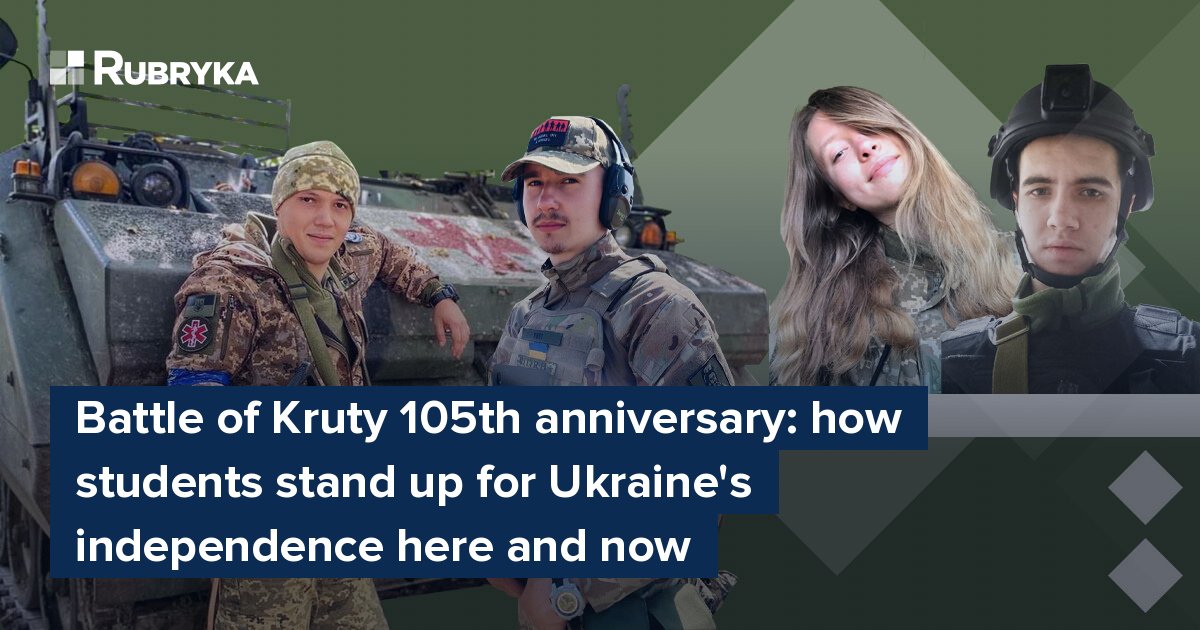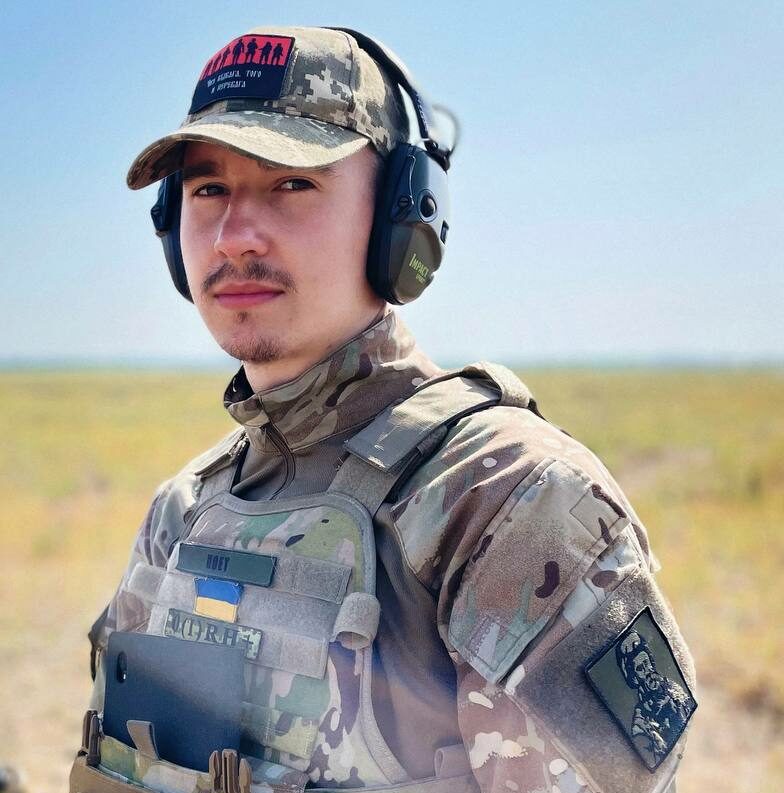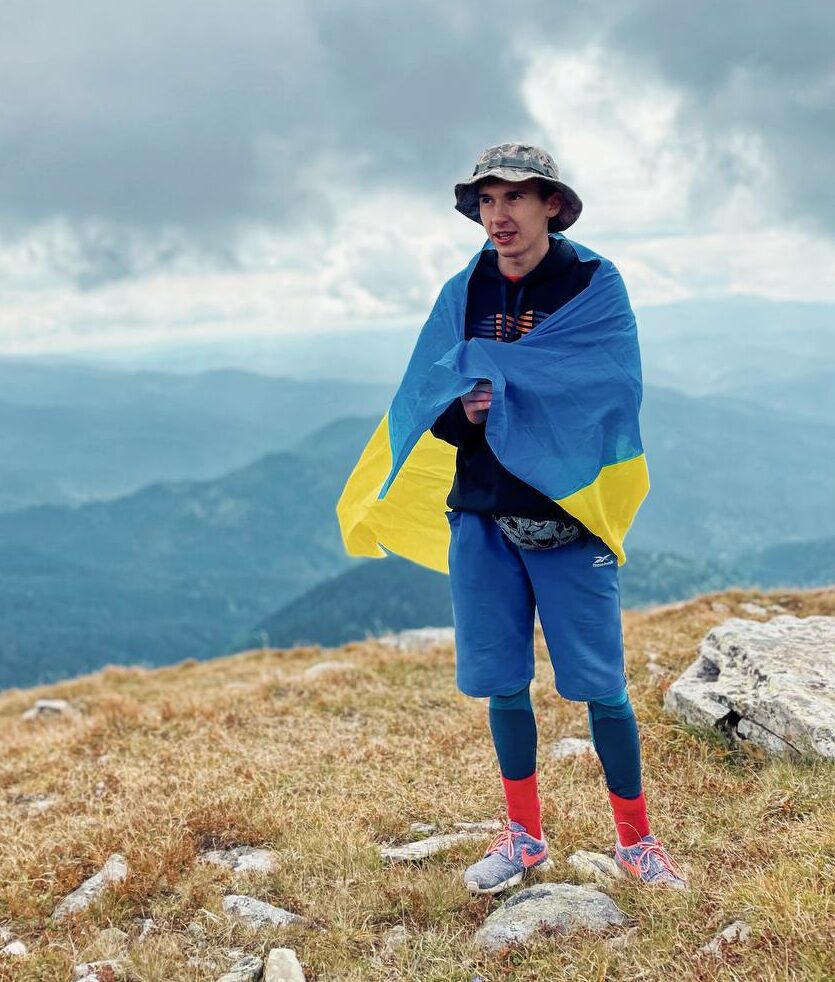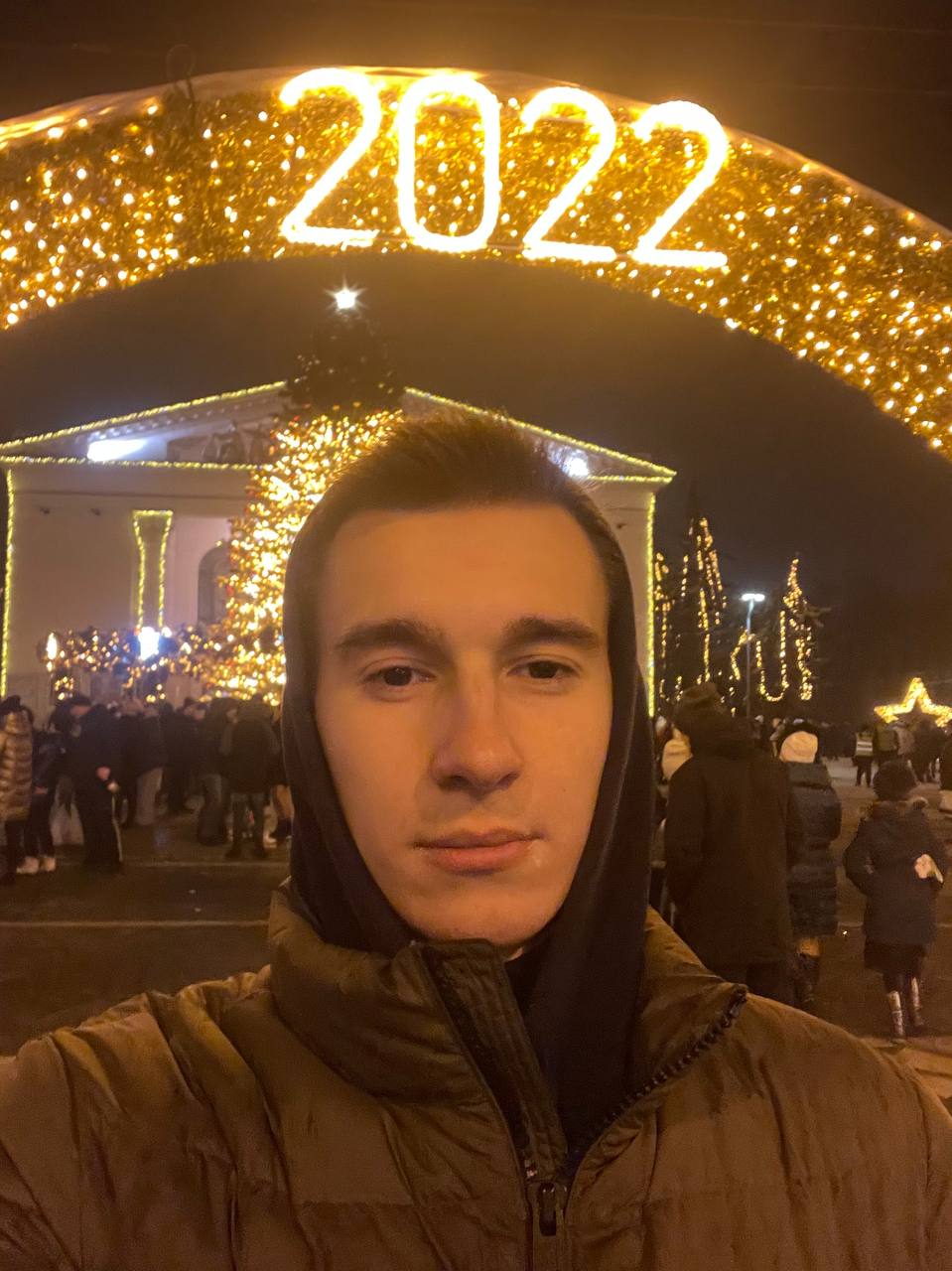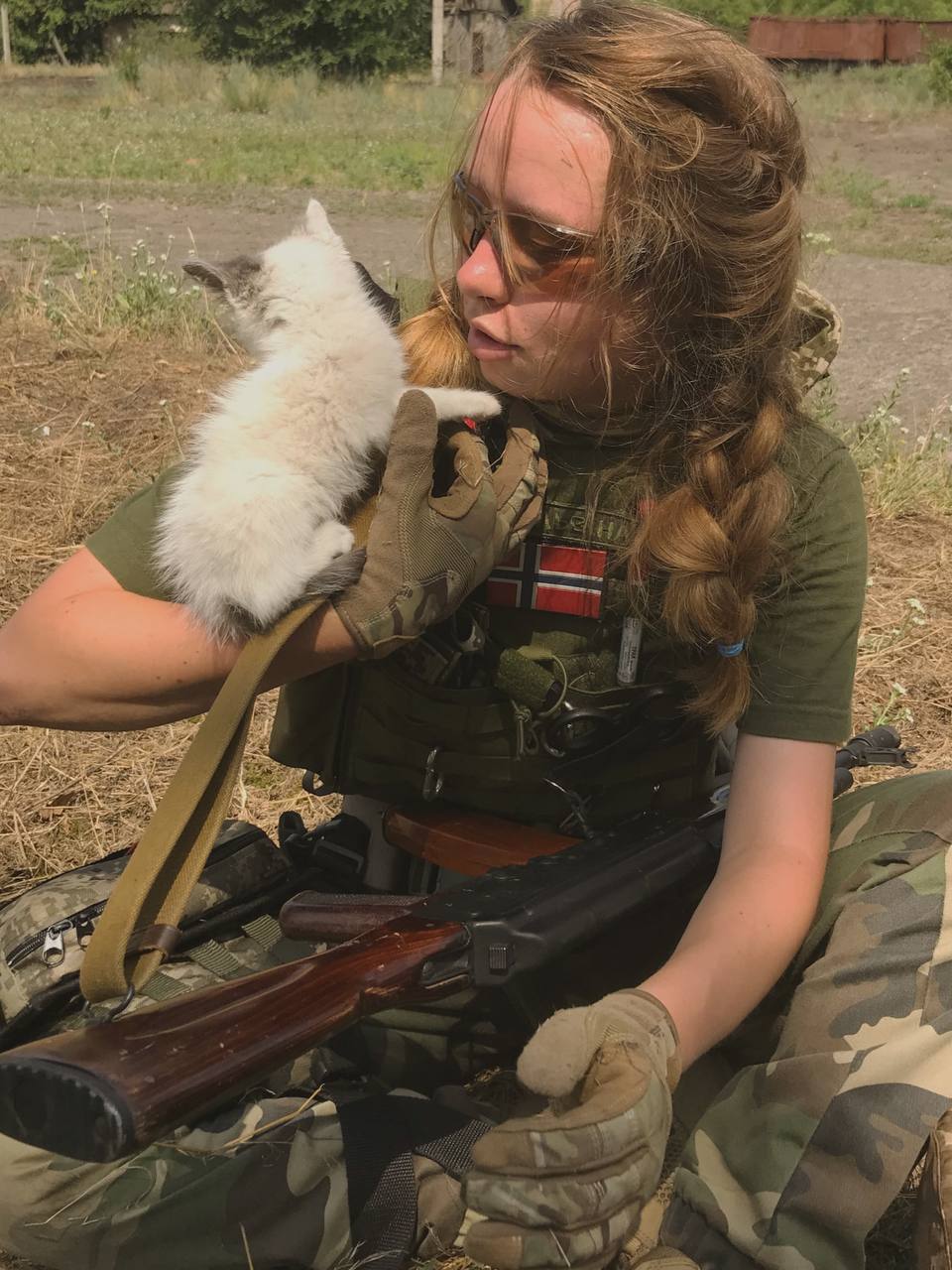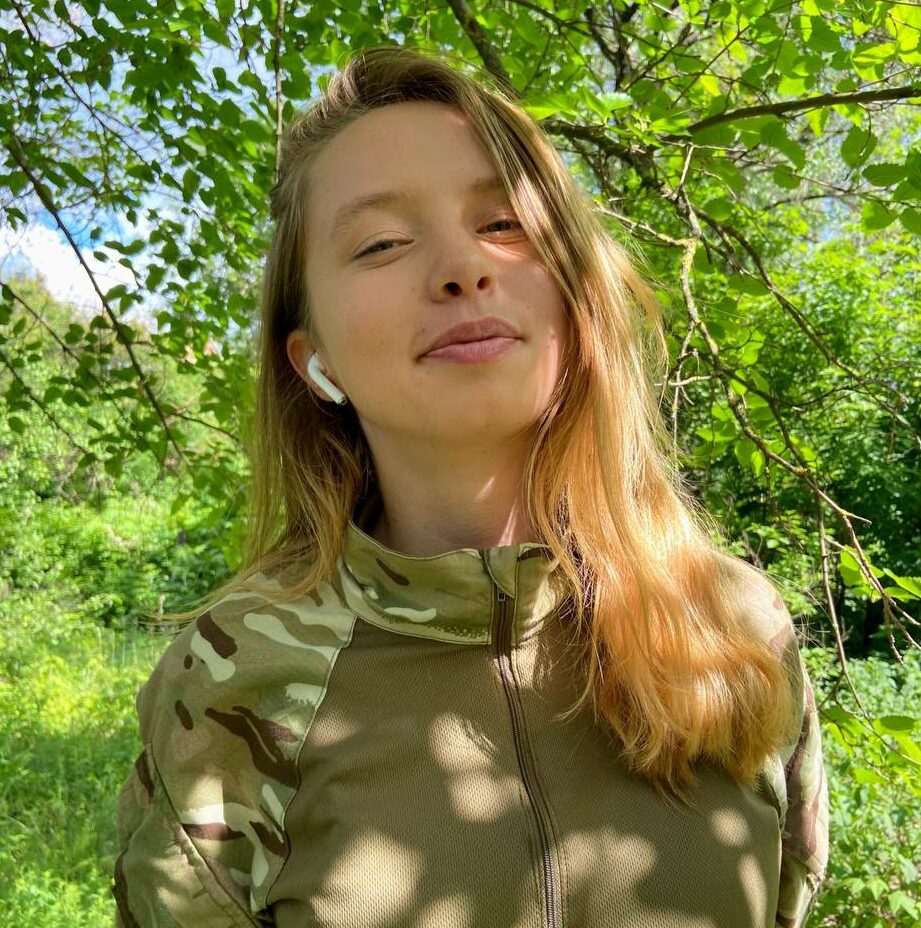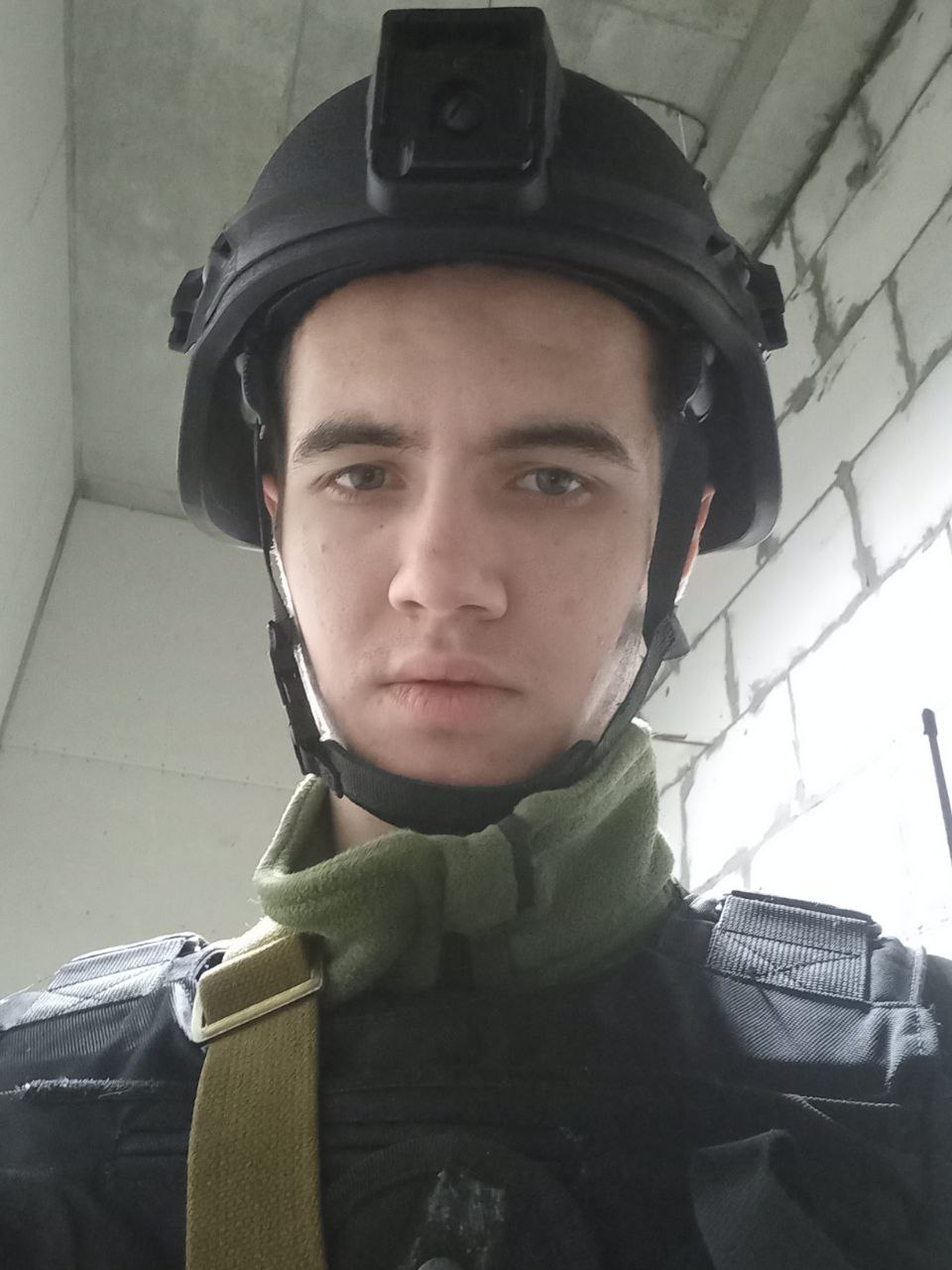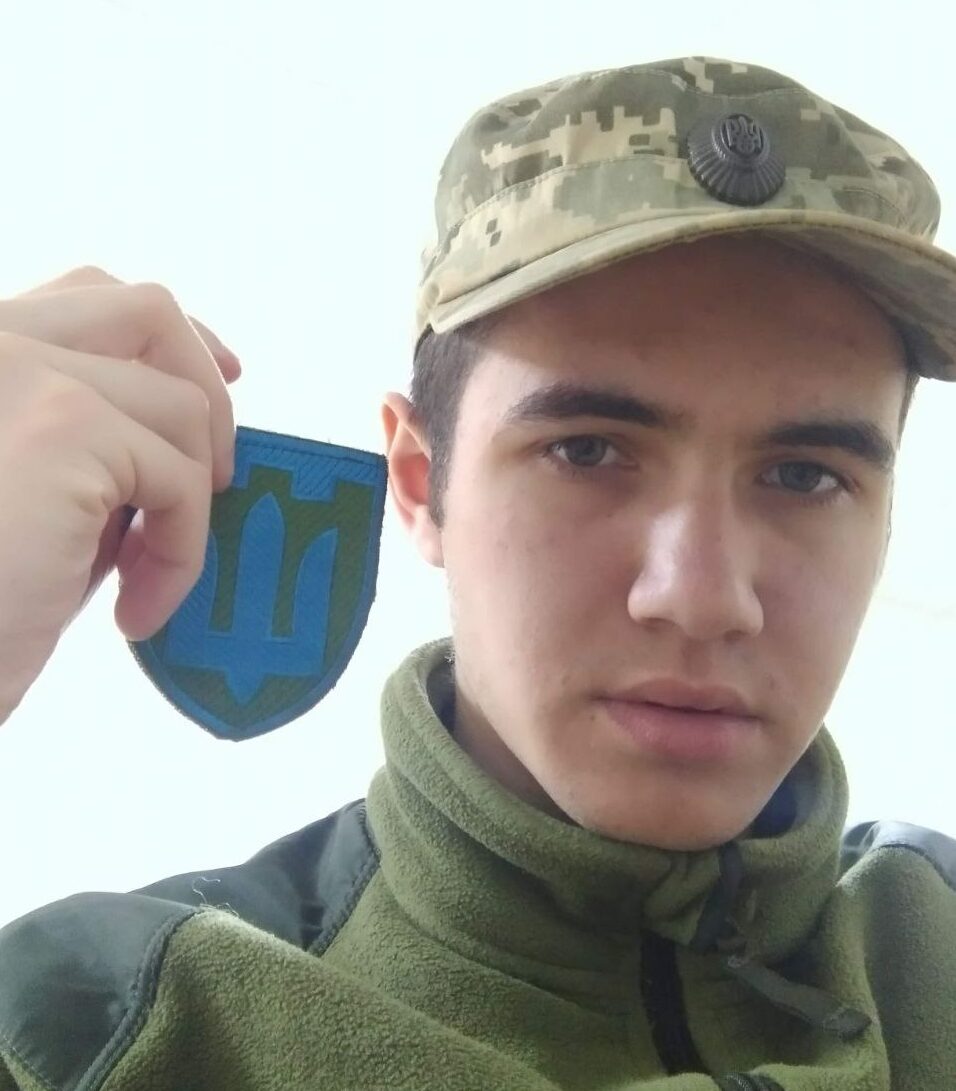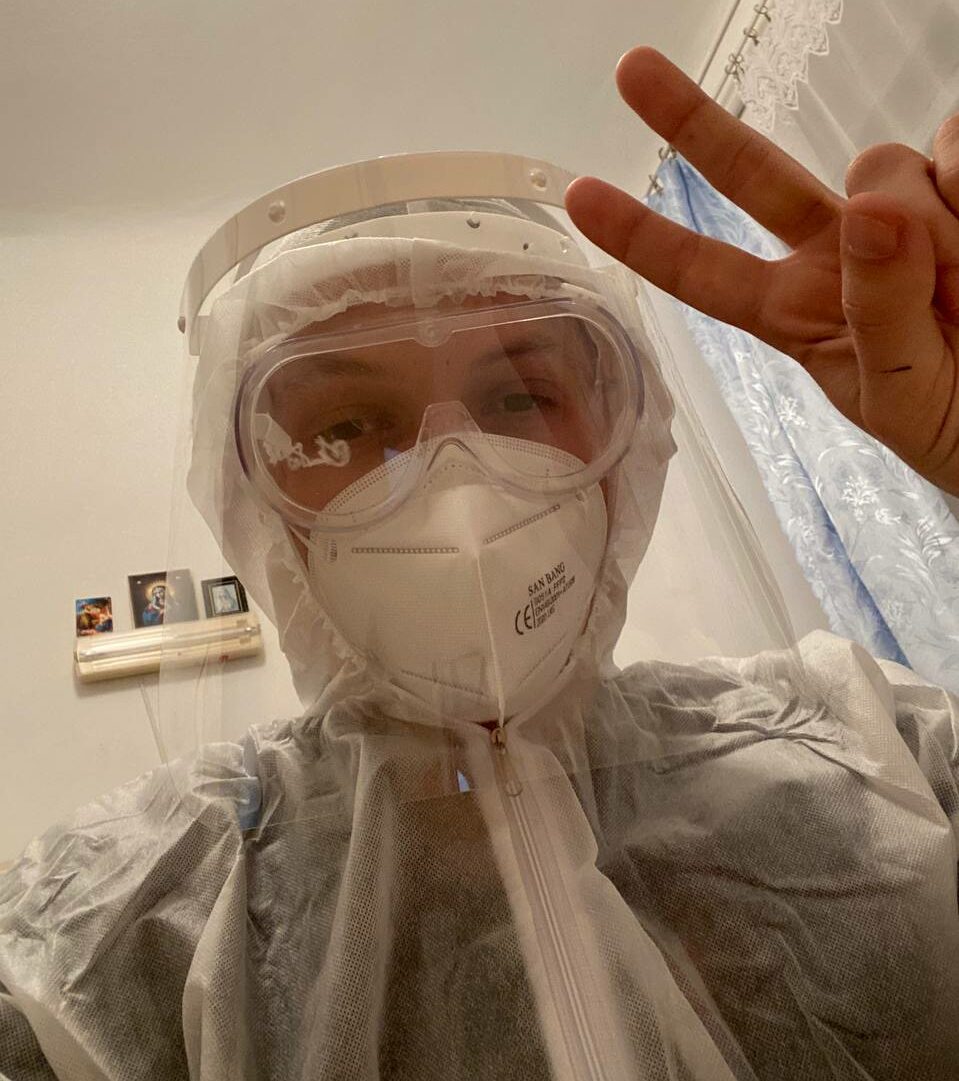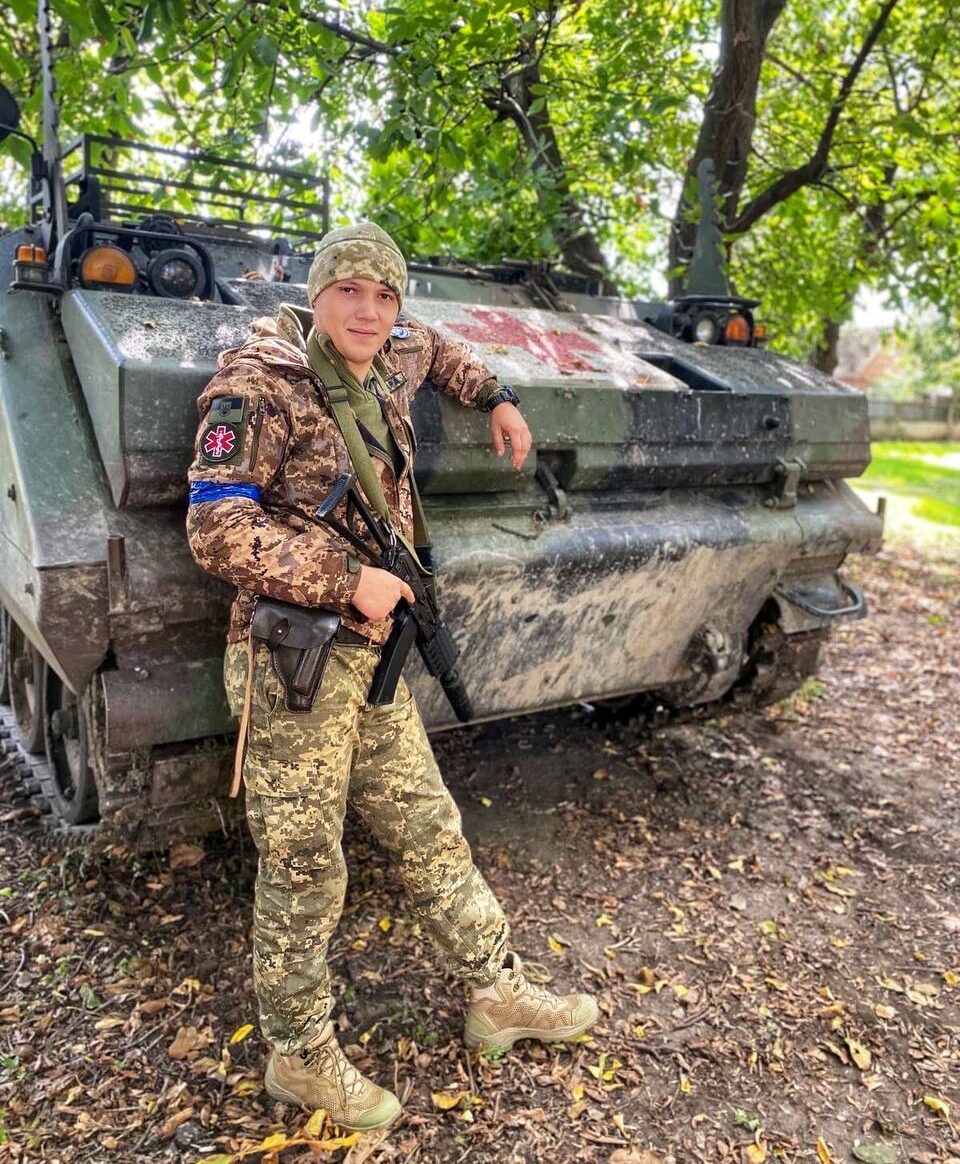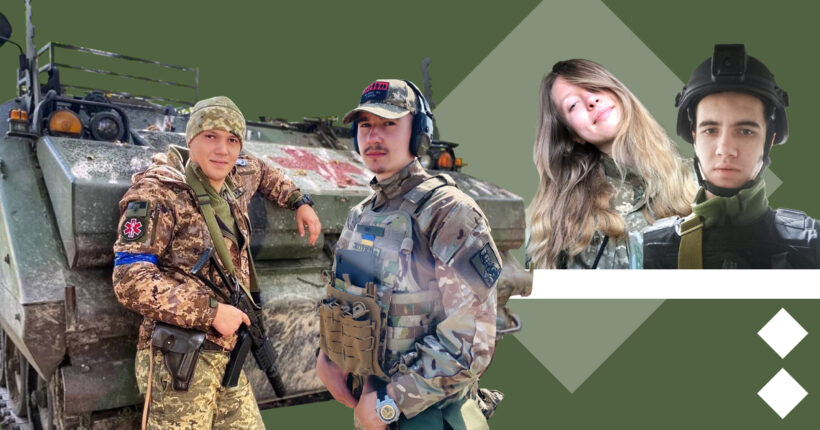
The Kruty railway station is 130 kilometers from Kyiv. One hundred five years ago, a battle of several hours took place there with a 5–6 thousand-strong unit of russia's Red Guard on one side and 500–600 Ukrainian soldiers, including dozens of students, cadets, and apprentices, on the other. Then Ukrainian fighters managed to stop the advance of the Bolshevik troops to Kyiv for several days.
During the eight years of the war waged by russia against Ukraine, thousands of students took up arms to fight for Ukraine's sovereignty. Instead of workshops and lectures, they are again choosing trenches and battles. Rubryka gathered the stories of defenders who went to war straight from the university walls.
"Our task is to put an end to this story," Vitalii from Cherkasy
On the eve of a full-scale invasion, 20-year-old Vitalii and his girlfriend were preparing for war — emergency backpacks were ready. The boy studied at the Ukrainian Leadership Academy and the National Aviation University in Kyiv. After February 24, Vitalii left the capital for his native Cherkasy, where he and his father began to pound the pavements at the territorial defense units and military enlistment offices.
"I'm 20 years old, and my father is over 60. Everyone told us that they would call back, but it was useless. However, our relatives were glad because no one wanted us to be drafted," says Vitalii.
The guy decided that he would definitely join the army when his friend died, Ukrainian Leadership Academy graduate. Ivan Pokydko was a soldier of the 3rd separate special purpose regiment named after Sviatoslav the Brave in the Ukrainian Armed Forces.
"Vania is a powerful and bright person. He was in the war for only 16 days. Like everyone I know, I was struck by this news."
Then Vitalii enrolled in the Right Sektor organization and underwent training. He convinced his parents that he had to go to war and there was no other way. His conscience would not have allowed him to do otherwise.
"My friend died, and I stay here at home? It has always been the case that young people die in war. Intelligentsia is the backbone of our army. Our task is to put an end to this story. I have a nephew. I don't see the scenario where after many years, he is at war with russia again. We should solve the problem that our parents did not cope with."
Vitalii got into the artillery and now performs the tasks of a mortar gunner. It was his second combat tour. Now he's in the south of Donbas. The guy doesn't give up his studies and tries to keep up with everything. His classmates help a lot, and teachers often meet him halfway.
"I tried several times to join the online lectures. My classmates are sitting at their computers, and behind me, there is shelling. It is unpleasant and frightening. Some conscientious teachers said that it was illegal to combine service and study. But how should we act? How many students are fighting now? Who but us will do it? It is illegal to come to our land and kill our people," says Vitalii.
Parents miss their son. It is challenging for the guy to listen to his mother crying on the phone, but he cannot change the choice he made a year ago. And he doesn't want to. And his father supported him with advice because he served in Soviet times.
"Dad tells me how to behave in the army and communicate with officers and commanders. He would also like to fight, but his age is considerable," says Vitalii.
Over the past year, the guy has become more self-confident and mature. Vitalii is often told about his mature look and tired eyes.
"Not everything is fantastic in the world. We have to fight. Over the past year, I realized that our nation's revival is now taking place. How many people went to defend the country and paid bribes just to be accepted into the army? Everyone in the world saw who is who…"
"I wanted to experience everything that Ukraine is facing," Vika from Rohatyn
Before the full-scale war, Vika studied at the university and the Ukrainian Leadership Academy and worked as a waitress and bartender. In the future, she should become a professional lawyer.
"The war didn't start on February 24, but in 2014. But then, at the age of 13, I was clueless. When I realized what was happening, I thought about what I could do for my country. The realization came that I had to be there, at the frontline. But I did not dare because I had no experience or skills. It's like a little girl came and asked to be babysat," says Vika.
After russia's full-scale invasion, the young woman went to the frontline. 21-year-old Vika returned from Poland, where she was then, and enrolled in the Right Sector in Lviv.
"I was asked what I would do with my 45-kilogram weight at the frontline. I replied that I would become a doctor. I wanted to remain helpful to my country. I wanted to experience everything that Ukraine is facing — to feel what my country is feeling now," says Vika.
The young woman didn't tell her mother that she had returned from Poland and enrolled in the Right Sector. However, her mom somehow felt it.
"Mom asked: 'Vika, are you in Ukraine?' I had to confess that I was in the Right Sector," the woman remembers.
She stayed in the Right Sector for several months, then she was invited to the rear, but Vika wanted to move forward and help at the frontline, so after a while, she found herself in frontline positions.
"Now I serve in my best battalion," says the woman.
Now, together with her comrades, she is in the Donetsk direction. A doctor must monitor all patients and their state of health and deal with the evacuation of the wounded on a combat mission, doing everything to reach the medical facilities alive.
"Medics are a valuable unit. They do not go to the assault or sit in the trenches. We deal with evacuation and stabilization. Usually, the guys carry out wounded fighters from under fire. If they can't, they tell the doctor where to go," the woman explains.
Vika recalls her first assault:
"We reached the starting line and walked a little when the [russian] artillery started to shell us. The first 300s [wounded] appeared. I applied tourniquets. I didn't go any further because the radio station wasn't working. Self-defense turns on on the front lines: I don't do it if I can't. Later, when the broadcast started working, I was called by a company officer near the wounded soldier. He said that I would evacuate with him. The infantry vehicle arrived, we loaded up and left."
The woman speaks extremely warmly about her comrades. She says she can always count on them and feels protected.
"My first guys accepted me. They called me their daughter. These are the people with whom I went into the first battle, with whom I lay in the same hole, protecting myself from shrapnel. They were transferred to another base, but I still have great comrades now."
Mom calms down a little by listening to her daughter's stories about her comrades who defend Vika. The young woman continues her studies because she wants to get a diploma, even though it is challenging to do it in field conditions.
But Vika is not thinking of leaving the service either. They say Ukraine gained independence in 1991, but we are fighting for our sovereignty now. The war has already left its mark on the soul of a young doctor:
"I sometimes have thoughts that I'm immortal. I have already experienced so much, although, in the beginning, I was more courageous. After the first battle, it seemed that nothing worse could happen. But then something explodes closer… Or someone dies in front of my eyes. 'When will I be next?' Whether you want it or not, it gets into your head."
"We had no time to discuss our decision at all," Yehor from Kramatorsk
At the beginning of 2022, Yehor already had journalistic experience — he worked for a local news website and television. He graduated from the university and was soon supposed to receive a journalism diploma.
The start of a full-scale war forced the guy to change the microphone in his hands to a weapon. He decided to join the Territorial defense on February 25, together with his father. Yehor was 20 at the time, and dad was 43.
"Hotline numbers for enlistment were not available at the time. I found the address of the nearest military unit. I went there. They enlisted everyone there blindly. I was later told that they had no right to mobilize me. I did not fall under the first mobilization wave — those with service experience. And I was still too young," says Yehor.
Both Yehor and his father were mobilized. Mother stayed behind with her youngest daughter.
"In general, we had no time to discuss our decision. Everything was postfactum. My mother was calmer about my choice and more emotional about my father's," the guy recalls.
Currently, father and son are in different subdivisions of the territorial defense. Dad is fighting on one of the tensest sections of the front — the Svatove-Kreminna area. The guy himself remains with his military unit. His duties include its protection.
"Nothing is interesting or heroic about my work. If they ask if it is difficult for me, I always answer that it is difficult to be knee-deep in the mud under Bakhmut; it is difficult to entrench in the steppe with a 20-kilogram shoulder bag; it is difficult to operate anti-aircraft vehicles. And I guard. How is it difficult?"
Last year, the guy defended his thesis for a journalism diploma. But he decided not to attach his future to journalism, as he believed he was oversaturated with information. Therefore, in the summer of 2022, he applied for a master's degree at another faculty to study psychology.
"After the war ends, we will have a lot of work. Defenders and civilians will suffer from psychological problems and struggle with PTSD. I want to rehabilitate these people," Yehor shares.
The man will be in the army until demobilization is announced. Yehor jokes:
"Unless the rocket arrives and I finish my service early."
Until then, he will do everything that is required of him.
"Now I feel the rise of the nation. At 12 months into the war, our inner strength and unity are stronger than ever. We are moving from a complex of inferiority and hypocrisy to a civil society of people actively participating in their destiny."
"The war changed my outlook on life," Vadym from Ivano-Frankivsk
Until February 24, 23-year-old Vadym from the Ivano-Frankivsk region was going to graduate from medical university. Less than half a year of studies left, and he would have final exams in June.
"There are enough soldiers in my family — my mother, father, uncle, and aunt were also mobilized later. I knew I wanted to be a professional military medic when I entered medical school. When a full-scale war began, I could not sit idle," says the guy.
The man managed to enlist in the army only on the third attempt, and at the end of February, he had already arrived for service. For about two months, Vadym's unit stood in the rear, then went to the advanced positions. At first, it was the southern Donetsk direction, then the Zaporizhzhia region, just near the front line.
"In a few months, I changed many positions, from a paramedic to an acting medical service officer," Vadym says.
The guy had to work in the steppe as well. The medic remembers his first battle.
"My unit was told to take the position. I was taken by transport to the farthermost point. I was still in the controlled territory. The driver of the medical center comes running and says that mortar shelling has begun. I moved away from the car and lay down in the hole so as not to get hit by debris. A battle was going on somewhere nearby. 'Vadik, there's the 300s.' All I remember is how I put on my gloves and ran. The path was 60 meters long, and I had to move only along it because there could be mines nearby".
The man's comrade had a leg injury, and he had already put a tourniquet on himself. Vadym only recorded the time, made a bandage, and sent the wounded man for evacuation. Then they brought another wounded person.
"I hear on the radio that my brothers are asking for support because they are fighting. I reflexively grabbed the cartridges, loaded the machine gun, and checked the first aid kit. I run out and see the steppe and beam. All around is a forest. I run across the field, not understanding where the battle is taking place. Sometimes it seemed that it was all around me. The head wants to run, but the legs can't. I didn't know how much to run. When I ran back, they explained that my unit was retreating and that I should dig a trench."
Being a doctor on duty means constantly improving, says Vadym. He continually makes up his treatment regimens with his colleagues and rethinks past experiences to make his job better.
"I went through my medical bag six times. The circumstances were constantly changing, so it was more reasonable to have other drugs or means. All the more so as the troops have to be treated not only for injuries but also for flu or colds."
Currently, the command has sent Vadym to receive specialization at the Military Medical Academy.
"I came to study, and there is snow here… It was so nice to see it because there was no snow in the south. Over the course of a year, my attitude towards the family and my significant other changed; for a long time, I did not realize this. I concluded that I just wanted to live and rejoice in such simple things as snow."


